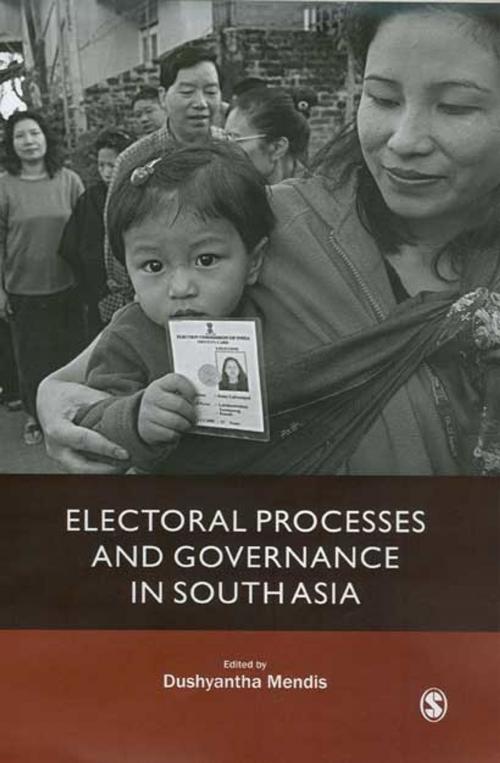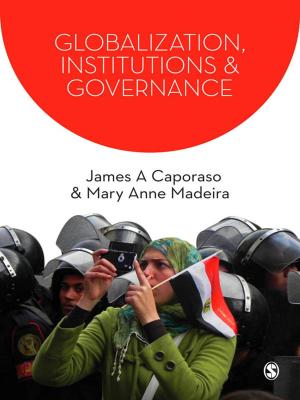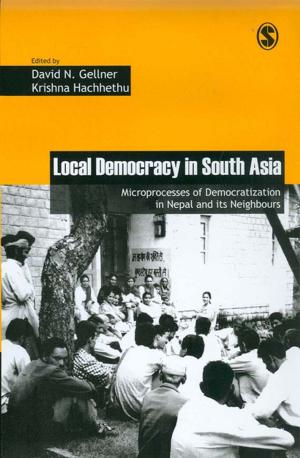Electoral Processes and Governance in South Asia
Nonfiction, Social & Cultural Studies, Political Science| Author: | ISBN: | 9789352801343 | |
| Publisher: | SAGE Publications | Publication: | December 4, 2007 |
| Imprint: | Sage Publications Pvt. Ltd | Language: | English |
| Author: | |
| ISBN: | 9789352801343 |
| Publisher: | SAGE Publications |
| Publication: | December 4, 2007 |
| Imprint: | Sage Publications Pvt. Ltd |
| Language: | English |
Most South Asian countries—following independence from British rule in the late nineteen forties, and in the case of Nepal, liberation from the autocracy of one family group in 1950—have enjoyed democratic systems of governance at least at some time or the other, often for extended periods of time, and, in a few cases, over the course of their post-independence history. Electoral processes have, however, been found wanting to greater or lesser extents in all these countries. Electoral malpractices are of critical concern to all South Asian countries.
It is in this background that the International Centre for Ethnic Studies, Kandy,Sri Lanka, with funding from the Ford Foundation, organized in 2002, an international conference on electoral processes and governance in South Asia. The South Asian countries selected for study were Bangladesh, India, Nepal, Pakistan and Sri Lanka, and papers were presented by experts in the area of electoral processes and governance in these countries. This book, based on the papers originally presented at that conference, seeks to understand electoral processes as they actually operate in South Asia, to discuss the reasons for the flaws in these systems and the degrees of success or failure in attempts at reform.
Most South Asian countries—following independence from British rule in the late nineteen forties, and in the case of Nepal, liberation from the autocracy of one family group in 1950—have enjoyed democratic systems of governance at least at some time or the other, often for extended periods of time, and, in a few cases, over the course of their post-independence history. Electoral processes have, however, been found wanting to greater or lesser extents in all these countries. Electoral malpractices are of critical concern to all South Asian countries.
It is in this background that the International Centre for Ethnic Studies, Kandy,Sri Lanka, with funding from the Ford Foundation, organized in 2002, an international conference on electoral processes and governance in South Asia. The South Asian countries selected for study were Bangladesh, India, Nepal, Pakistan and Sri Lanka, and papers were presented by experts in the area of electoral processes and governance in these countries. This book, based on the papers originally presented at that conference, seeks to understand electoral processes as they actually operate in South Asia, to discuss the reasons for the flaws in these systems and the degrees of success or failure in attempts at reform.















